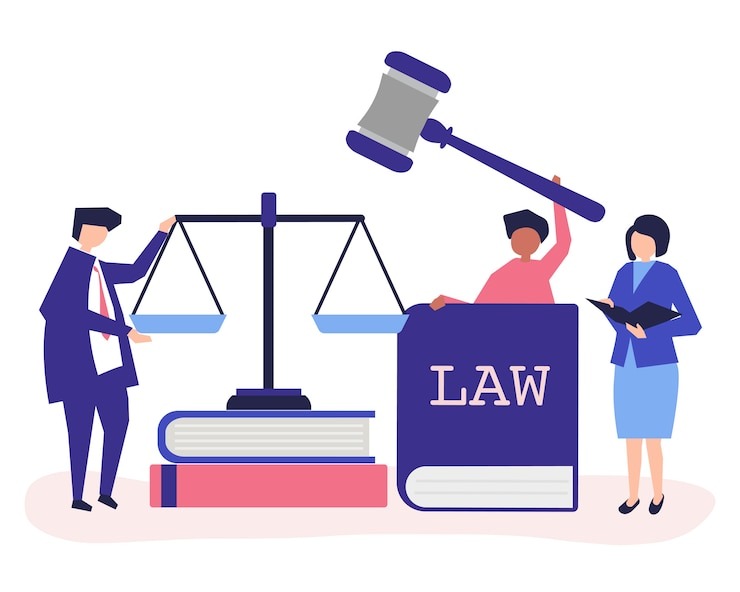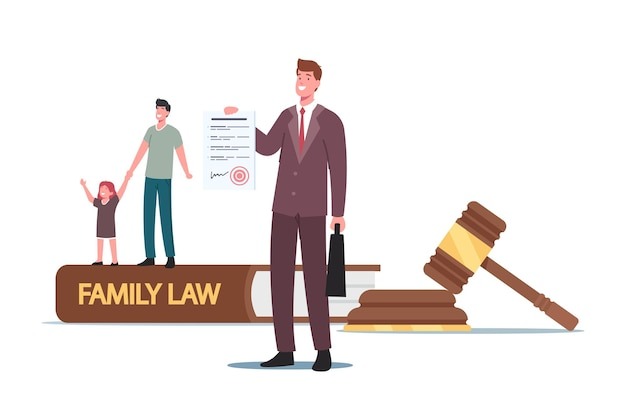Hiring a family lawyer often comes during a tough time. Whether it’s about separation, parenting arrangements, or sorting out finances, it’s usually an emotional period. And for many people, the thought of seeing a lawyer makes everything feel even more overwhelming. But it really doesn’t have to be like that.
Understanding what the process actually looks like can take away a lot of that anxiety. It’s not about preparing a case like you’re on trial or walking into a room full of legal jargon. It’s about getting support from someone who knows how to handle these issues and who’ll walk you through it step by step.
The First Step Is a Simple Chat
You don’t need to show up with a perfectly organised folder of documents or a full timeline of events. Most first meetings with a family lawyer Sydney start with a relaxed conversation. They’ll ask about your situation, what’s happened so far, and what kind of outcome you’re hoping for. You might not even know the full answer to that last part yet, and that’s completely fine.
They’ll listen carefully, ask for context, and help you start to make sense of what’s happening. Some people arrive in tears, some are angry, and some just feel exhausted. There’s no right way to be. What matters is being honest and open, even if parts of your situation are messy or painful to talk about.
You’re not expected to have all the facts or documents on hand from day one. It’s about starting the conversation and building a picture together.

They’ll Make the Law Understandable
After hearing your story, the lawyer will explain what the law says about your situation. This is where their expertise really comes in; not just knowing the law, but being able to explain it in a way that actually makes sense.
They’ll talk you through what your rights are, what the other party’s rights might be, and what the legal options look like. You’ll get an idea of what might be possible, how long things could take, and what sort of paperwork or preparation might be involved.
They won’t expect you to make decisions on the spot. The goal at this stage is to help you understand the path ahead so that, when you are ready to take action, you’ll be making informed decisions.
What They Actually Do for You
There’s a common misconception that hiring a lawyer means paying someone just to give advice. That’s a very small part of what they do.
A family lawyer becomes your representative in the legal world. They handle documentation, file court applications if needed, and speak on your behalf during negotiations or hearings. They also deal directly with the other party’s lawyer, which takes a lot of emotional pressure off you.
If you need parenting plans, financial settlements, or formal agreements, your lawyer will make sure those are written correctly and comply with legal standards. They’ll manage deadlines and make sure nothing is missed. Most importantly, they’ll keep you updated and explain each stage as it unfolds.
You’re not expected to know what comes next; they take care of that.
Your Role in the Process
Hiring a lawyer doesn’t mean stepping away entirely. There are still things you’ll need to do, but you won’t be doing them alone.
You might need to gather financial records, communication history, or documents related to property or parenting. These help build a full and accurate picture of the situation. Being honest about what’s happened — even if it’s uncomfortable — gives your lawyer the best chance to support you properly.
They’ll also need you to stay involved, check in regularly, and respond to questions as things progress. You won’t need to learn legal language or understand court procedures, but staying informed and engaged will help things run more smoothly.
It Doesn’t Always Lead to Court
Not every family law matter ends up in front of a judge. In fact, most don’t. A lot of issues are resolved through negotiation, discussion, or formal mediation.
Many people are surprised to learn that court is usually seen as a last resort. It’s there if agreements can’t be reached or if there are urgent concerns, but your lawyer will often aim to resolve things earlier and with less conflict. That means fewer delays, lower costs, and a process that feels less combative overall.
Even if court is eventually needed, you’ll be prepared. Your lawyer will explain what to expect, guide you through the process, and make sure you’re supported throughout.
Costs and Clarity Around Fees
Money worries are one of the biggest reasons people hesitate to hire a lawyer. No one likes uncertainty, especially when they’re already under stress.
A good family lawyer will explain their fees clearly right from the start. You’ll find out whether they charge by the hour, offer fixed pricing for certain services, or if there are additional costs like filing fees or expert reports.
It’s completely fine to ask detailed questions about pricing. You should understand exactly what you’re paying for and when payments are due. That clarity can make a huge difference to how comfortable you feel moving forward.

You’re Not Expected to Do This Alone
Family law matters are often tied to some of the most difficult moments in life, such as the breakdown of a relationship, disputes over parenting arrangements, concerns about family violence, or navigating financial separation after years of shared commitments.. It can be easy to feel like you’re carrying everything on your shoulders, trying to keep things civil while also protecting your rights and your future.
Hiring a family lawyer isn’t about making things more dramatic. It’s about making sure you have someone in your corner who understands the system and knows how to use it to help you. It’s about removing some of that mental load and knowing you’re not the only one trying to keep things on track.
Moving Forward With Confidence
If you’ve been putting off speaking to a family lawyer because you’re nervous about what it involves, it might help to reframe it. This isn’t about making things harder or more complicated. It’s about giving yourself the tools and support to handle a challenging situation with more clarity and less stress.

